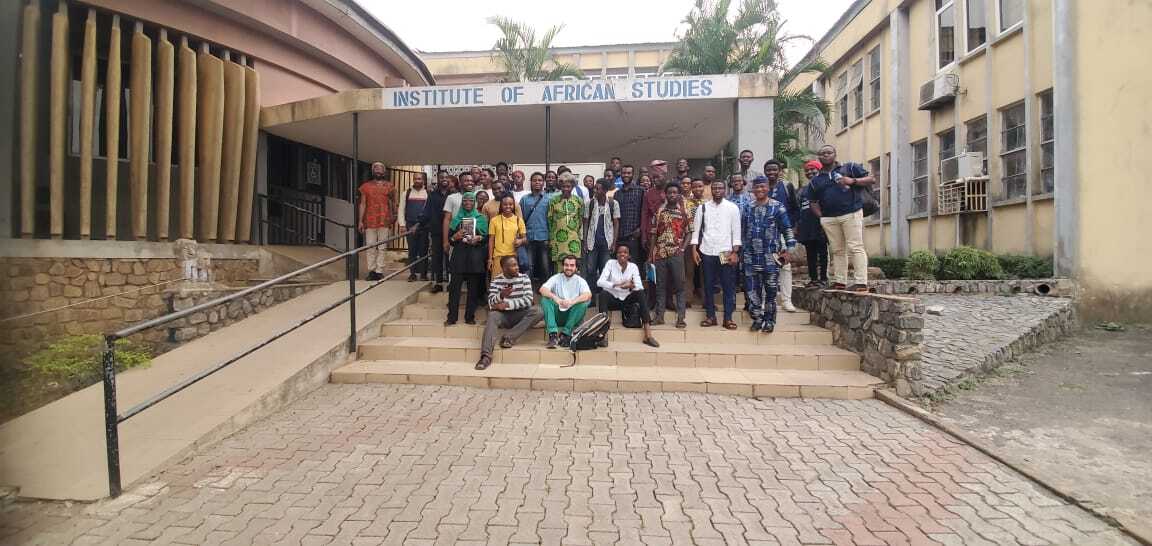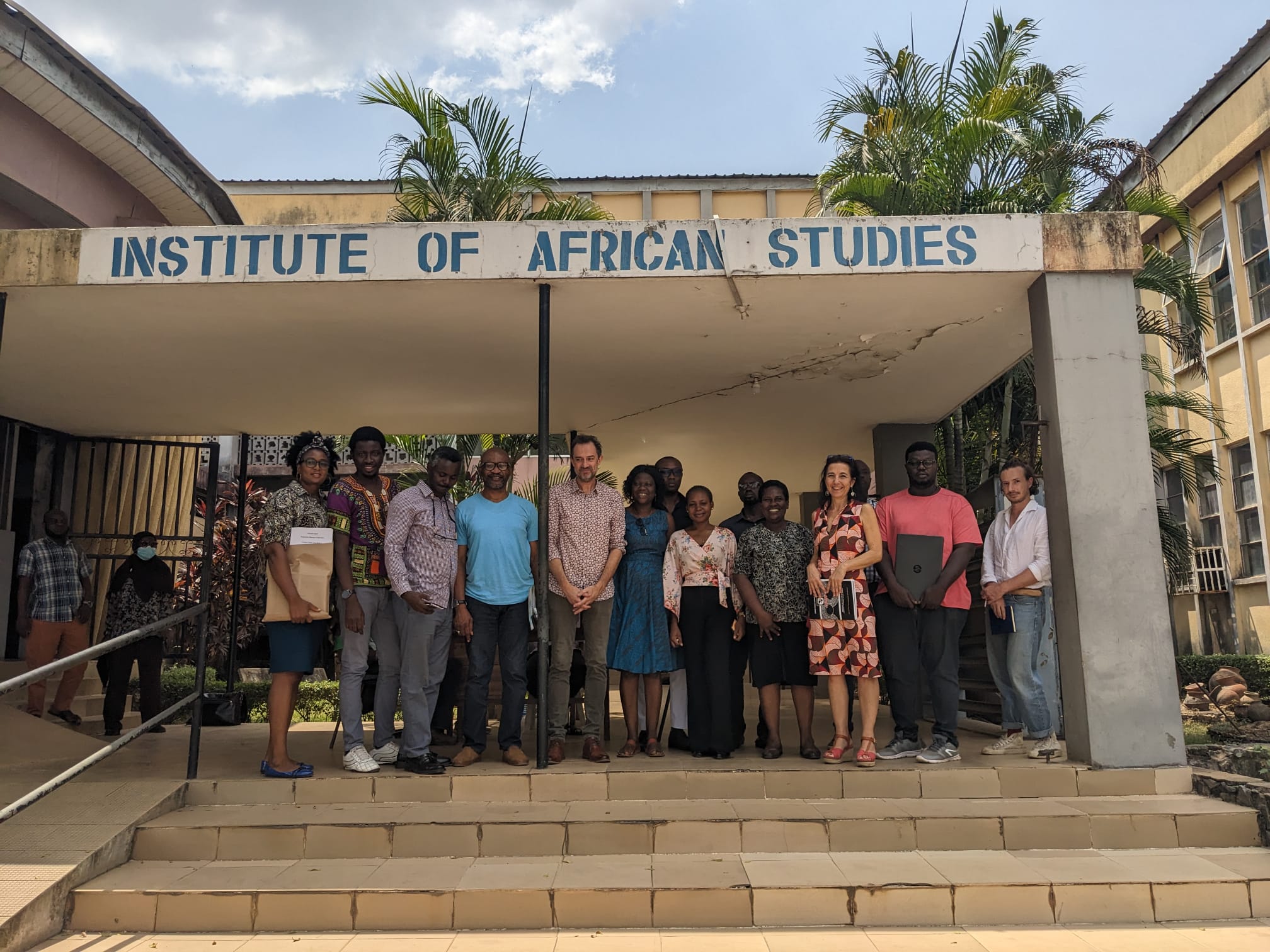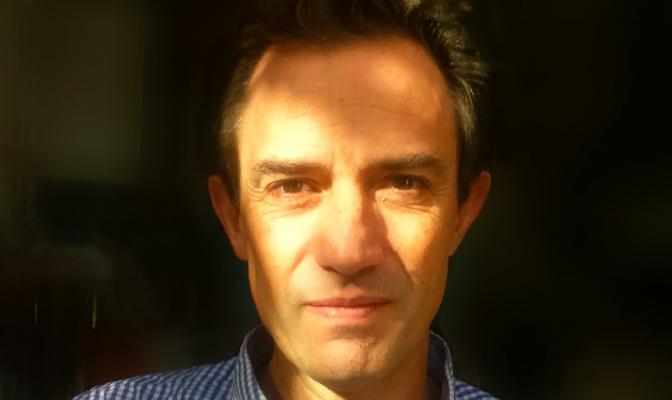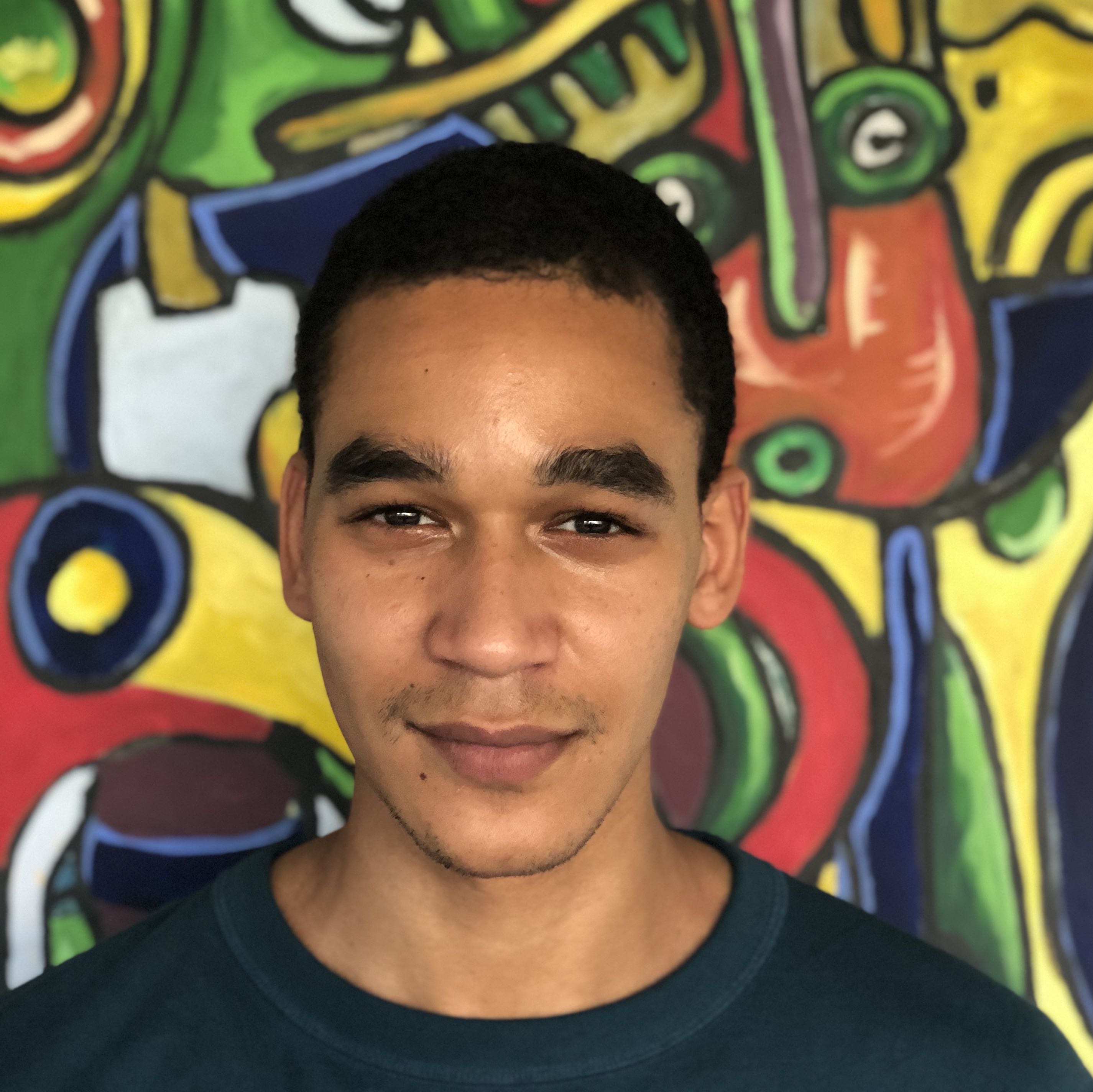 (French version below)
(French version below)
This call is adressed to Masters Students - Doctoral Students - Post-Doctoral Students - Researchers
IFRA-Nigeria - French Institute for Research in Africa located within the Institute of African Studies, University of Ibadan (UMIFRE 24 /CNRS and MEAE) has a regional vocation that extends over ten West African countries: Nigeria, Benin, Burkina Faso, Cameroon, Gambia, Ghana, Liberia, Niger, Chad and Togo. It promotes and supports research in the humanities and social sciences in Nigeria and in the other aforementioned countries.
Continue Reading
 Le GIS Études africaines en France (CNRS, UAR 2999) organise en 2023 son Prix de thèse pour deux lauréat.es. La somme de 2500 € sera accordée à chaque lauréat.e pour l’appui à la publication de sa thèse, chez ENS Editions.
Le GIS Études africaines en France (CNRS, UAR 2999) organise en 2023 son Prix de thèse pour deux lauréat.es. La somme de 2500 € sera accordée à chaque lauréat.e pour l’appui à la publication de sa thèse, chez ENS Editions.
Sont éligibles des travaux soutenus en français et en France, entre le 1er janvier 2022 et le 31 décembre 2022, dans toutes les disciplines des sciences humaines et sociales et des lettres (anthropologie, géographie, histoire, langues et littérature, science politique, sociologie, archéologie…).
Continue Reading
 On the 16th of February, IFRA-Nigeria and the Thursday-Film Series organised a joint event gathering 60 people. Introductions were made by Dr. Olutayo, Dr. Olorunyomi and Dr. Morovich. The event included a book launch where Dr. Sola Olorunyomi presented his newly reprinted book: Afrobeat – Fela and the imagined continent. Two panelists, Ms Adeyosola Adeniran and Mr Leye Komofale discussed its content. Numerous topics were discussed such as the relations between Afrobeat and pop culture, the relations between Fela and the state, and the relations between Fela and women as well as Fela’s identity politics.
On the 16th of February, IFRA-Nigeria and the Thursday-Film Series organised a joint event gathering 60 people. Introductions were made by Dr. Olutayo, Dr. Olorunyomi and Dr. Morovich. The event included a book launch where Dr. Sola Olorunyomi presented his newly reprinted book: Afrobeat – Fela and the imagined continent. Two panelists, Ms Adeyosola Adeniran and Mr Leye Komofale discussed its content. Numerous topics were discussed such as the relations between Afrobeat and pop culture, the relations between Fela and the state, and the relations between Fela and women as well as Fela’s identity politics.
Continue Reading
 On the 6th of February 2023, Laurent Fouchard, Research Professor at the Centre for International Studies (CERI) and at the Urban School of Sciences Po Paris, gave a conference at the Institute of African Studies of the University of Ibadan. He presented his current research on the political relations between the State and the National Union of Road Transport Workers in Nigeria (Lagos and Ibadan particularly) since 1978. Laurent Fourchard method involves the combination of historical and ethnographic approaches.
On the 6th of February 2023, Laurent Fouchard, Research Professor at the Centre for International Studies (CERI) and at the Urban School of Sciences Po Paris, gave a conference at the Institute of African Studies of the University of Ibadan. He presented his current research on the political relations between the State and the National Union of Road Transport Workers in Nigeria (Lagos and Ibadan particularly) since 1978. Laurent Fourchard method involves the combination of historical and ethnographic approaches.
Continue Reading
 Can you explain to us what your current project in Nigeria is and what brings you to Ibadan?
Can you explain to us what your current project in Nigeria is and what brings you to Ibadan?
I have been working on the NURTW for six years mainly because some of the colleagues here at the Institute of African Studies (Isaac Olawale Albert) started to work on this topic. I thought the subject was fascinating because the Union has a peculiar role: rather than protecting the rights of the Union members or drivers its primary role is to regulate transports in most of Nigeria and take dues over the drivers. My main focus is on Lagos and Ibadan, I am right now conducting my third fieldwork on this project.
Continue Reading
 Le 23 janvier 2023 aura lieu une journée d’étude sur le thème des patrimonialisations populaires et postcoloniales « minoritaires » en France et à l’étranger. Cet évènement est le fruit d'un partenariat entre différents laboratoires et instituts de recherche : l'AMUP (Architecture, Morphologie / Morphogenèse Urbaine et Projet), le SAGE (Sociétés, Acteurs, Gouvernement en Europe), l'IFRA-Nigeria, et le réseau ‘lieu’. La journée d’étude se déroulera en présentiel à l’Université de Strasbourg mais sera accessible en direct pour tous via Zoom. Le lien pour y accéder est disponible ici.
Le 23 janvier 2023 aura lieu une journée d’étude sur le thème des patrimonialisations populaires et postcoloniales « minoritaires » en France et à l’étranger. Cet évènement est le fruit d'un partenariat entre différents laboratoires et instituts de recherche : l'AMUP (Architecture, Morphologie / Morphogenèse Urbaine et Projet), le SAGE (Sociétés, Acteurs, Gouvernement en Europe), l'IFRA-Nigeria, et le réseau ‘lieu’. La journée d’étude se déroulera en présentiel à l’Université de Strasbourg mais sera accessible en direct pour tous via Zoom. Le lien pour y accéder est disponible ici.
Continue Reading

Cordelia Olatokunbo Osasona is a Professor of Architecture, the first female architect to be trained by the University of Ife (now Obafemi Awolowo University, OAU), and the first female Professor of Architecture in Southwestern Nigeria. Similarly, she is the first female Professor in the Faculty of Environmental Design and Management (EDM) of the University. She also holds a Master degree in Fine Arts. At OAU, she was Head of Department between 1997 and 1999, and again from 2006 to 2009. She was also Vice-Dean of the Faculty of EDM from 2008 to 2010. She was Visiting Professor in the Department of Civil Engineering, University of Ibadan, from 2016 to 2017, from where she helped the University establish a Department of Architecture, which she headed till her departure in 2020.
Professor Osasona’s area of research is History of Architecture, with a special passion for African traditional/ vernacular architectural forms, materials and techniques, highlighting their art content. Most of her recent publishing output has been based on her fieldwork in Heritage Architecture conservation and renewal, in the traditional core area of Ile-Ife. She has published three University-accredited books (one of which is widely locally acclaimed in Schools of Architecture as a manual for Architectural Graphics, and with two of them on the Amazon platform for more than five years; also, numerous journal and conference articles, of local and international acceptability. She is a frequent presenter at Wessex Institute of Technology (WIT), UK, conferences, and has been a member of the International Scientific Advisory Committee of WIT’s STREMAH Conferences, since 2013. She has also served, at different times, on Editorial Boards of some international and local journals.
Cordelia Osasona is a Fellow of the Nigerian Institute of Architects (NIA) – the first female Professor to combine both distinctions. She has served both the Institute and the Architects’ Registration Council of Nigeria (ARCON) as a member of the Board of Architectural Education (NIA-BAE, ARCON-BAE, respectively and actively), since 2008 and until 2019. On the platform of BAE activities, she has been involved in several professional accreditation exercises within Nigeria (frequently serving as Secretary or Chairman of such Panels). Similarly, she has represented both local Professional Bodies at five (5) Commonwealth Association of Architects (CAA) accreditation exercises within the African continent.

Dr Molatokunbo Olutayo
Senior Research Associate, Director of Institute of African Studies, University of Ibadan
This email address is being protected from spambots. You need JavaScript enabled to view it.
This email address is being protected from spambots. You need JavaScript enabled to view it..
Continue Reading

Between 21st and 26th March, Dr Cyrielle Maingraud-Martinaud and Dr Vincent Hiribarren attended
the first conference on Digital Humanities in Francophone Africa. The conference took place at the University of Yaounde I in Cameroon and gathered more than 60 participants from various African francophone countries (including Cameroon, Ivory Coast, Burkina Faso, Niger etc.) and other countries (including France, Germany, Australia and Brazil).
Continue Reading

Dr Senayon Olaoluwa
Senior Research Associate, Director of Institute of African Studies, University of Ibadan
This email address is being protected from spambots. You need JavaScript enabled to view it.
Continue Reading
 Dr Gernot Klantschnig
Dr Gernot Klantschnig
Senior Research Associate
Gernot Klantschnig joined the University of Bristol in 2019, from the University of York, where he was a Senior Lecturer in Social Policy and Crime since 2014. He was previously Associate Professor of International Studies at the University of Nottingham’s China campus. He completed his doctorate in Politics at Oxford with a thesis on Nigeria’s role in the international trade and control of illegal drugs. This research has been the basis for several books and articles on the politics and history of drugs and crime, policing and healthcare in Africa. His research has also been supported by a variety of funding bodies, such as the British Academy, Chinese government and the World University Network. At York, Gernot also coordinated the MA in Global Crime and Justice and was co-chair of York’s research network on crime and criminal justice, CrimNet.
Gernot’s current research and publications focus on crime and drugs and their role in broader debates about trade, development, the state and health in Africa, China and globally.
He is currently co-coordinator of the TNOC project.

Prof. Francis Egbokhare
Senior Research Associate, Naija syncor Project
Continue Reading
Computers and the Internet have radically changed the way we study, learn, research and write. It won’t come as a surprise that this very phenomenon has triggered a wave of research and publications especially in the last thirty years. It has led to intense debates on the role and place of Digital Humanities (DH) in academia. DH have been presented either as a revolutionary discipline or a mere technological tool for researchers. Even though a growing number of African universities and research centres have been developing projects related to DH, this conversation has, until now, largely been circumscribed to rich universities located mostly in Western countries. At the same time, the development of Internet connections in African cities, the democratization of IT equipment and the growing access to material published online have opened new alleys to produce original data, have worldwide academic discussions and create a more open field of publishing. Disciplinary and political barriers are being crossed by more and more researchers willing to collaborate on joint projects.
With this picture in mind, IFRA-Nigeria has decided to launch a new ambitious programme on Digital Humanities located in Nigeria.
Our objective is to create a new Resource Centre in the place of our current library that will make available:
At the same time, we want to reflect on the way DH can be used in researching African contexts and dynamics without focusing solely on the technical dimension of what remains too often a technology-driven conversation. We reject the fetishization of technological tools and believe that DH are not only about fast computers and latest technologies which remain unaffordable for most researchers, particularly in Africa. We also recognise that technology is never neutral and can be used in a lopsided way. Tools should not dictate the way we undertake research but they can help us reshape our research questions in a more inclusive, bottom-up and critical way. We intend to organise regularly workshops and conferences to critically reflect on DH in African context, particularly in line with the current global conversation on the decolonization of knowledge.
Several projects on DH are currently conducted at IFRA-Nigeria:
- Nigeria Watch is an online database that, since 2006, monitors violence in Nigeria in order to provide statistics, analyse trends and draw maps.
- NaijaSynCor is a ground-breaking Franco-Nigerian corpus-based macro-syntactic study of Naija (Nigerian Pidgin).
- Naija Archives is a project that aims at facilitating the protection and accessibility of Nigerian historical heritage and making available to the public a wealth of public and private documents.
Continue Reading
This page displays the names of the junior researchers curently working on research projects at IFRA Nigeria.

Adéjọkẹ́ Rafiat Adétòrò
Phd Candidate in the Department of History, Faculty of Arts, University of Ibadan, IFRA-Nigeria, Leibniz-Zentrum Moderner Orient
Junior Research Associate, Museum of Unity Coordinator Nigerian Alternative Heritages project

Phd Student in geography, INSHS-CNRS, UMR 8586 PRODIG, Campus Condorcet Aubervilliers-Paris
Thesis: "The green side of the streets - Socio-spatial challenges of heritage and tourism decelopments of trees and forests in Porto-Novo (Benin) and Osogbo (Nigeria)"
Junior Research Associate, INFRAPATRI.

Masters of Landscape Architecture, University of Lagos / student of MsC Architecture, Obafemi Awolowo University (OAU)
Junior Research Associate, 'Religious Architectural Heritage in Ibadan' & Oyo Cultural Centre Coordinator for the Nigerian Alternative Heritages project
This email address is being protected from spambots. You need JavaScript enabled to view it.In accordance with the latest government statement regarding measures to contain the COVID-19 virus, IFRA-Nigeria's offices are closed until further notice, library included.
We continue to work from home and remain available at any time by email.
Please continue to follow us on our social media: Facebook, Twitter
 (French version below)
(French version below)
 Le GIS Études africaines en France (CNRS, UAR 2999) organise en 2023 son Prix de thèse pour deux lauréat.es. La somme de 2500 € sera accordée à chaque lauréat.e pour l’appui à la publication de sa thèse, chez ENS Editions.
Le GIS Études africaines en France (CNRS, UAR 2999) organise en 2023 son Prix de thèse pour deux lauréat.es. La somme de 2500 € sera accordée à chaque lauréat.e pour l’appui à la publication de sa thèse, chez ENS Editions. On the 16th of February, IFRA-Nigeria and the
On the 16th of February, IFRA-Nigeria and the  On the 6th of February 2023, Laurent Fouchard, Research Professor at the Centre for International Studies (CERI) and at the Urban School of Sciences Po Paris, gave a conference at the Institute of African Studies of the University of Ibadan. He presented his current research on the political relations between the State and the National Union of Road Transport Workers in Nigeria (Lagos and Ibadan particularly) since 1978. Laurent Fourchard method involves the combination of historical and ethnographic approaches.
On the 6th of February 2023, Laurent Fouchard, Research Professor at the Centre for International Studies (CERI) and at the Urban School of Sciences Po Paris, gave a conference at the Institute of African Studies of the University of Ibadan. He presented his current research on the political relations between the State and the National Union of Road Transport Workers in Nigeria (Lagos and Ibadan particularly) since 1978. Laurent Fourchard method involves the combination of historical and ethnographic approaches. Can you explain to us what your current project in Nigeria is and what brings you to Ibadan?
Can you explain to us what your current project in Nigeria is and what brings you to Ibadan? Le 23 janvier 2023 aura lieu une journée d’étude sur le thème des patrimonialisations populaires et postcoloniales « minoritaires » en France et à l’étranger. Cet évènement est le fruit d'un partenariat entre différents laboratoires et instituts de recherche : l'AMUP (Architecture, Morphologie / Morphogenèse Urbaine et Projet), le SAGE (Sociétés, Acteurs, Gouvernement en Europe), l'IFRA-Nigeria, et le réseau ‘lieu’. La journée d’étude se déroulera en présentiel à l’Université de Strasbourg mais sera accessible en direct pour tous via Zoom. Le lien pour y accéder est
Le 23 janvier 2023 aura lieu une journée d’étude sur le thème des patrimonialisations populaires et postcoloniales « minoritaires » en France et à l’étranger. Cet évènement est le fruit d'un partenariat entre différents laboratoires et instituts de recherche : l'AMUP (Architecture, Morphologie / Morphogenèse Urbaine et Projet), le SAGE (Sociétés, Acteurs, Gouvernement en Europe), l'IFRA-Nigeria, et le réseau ‘lieu’. La journée d’étude se déroulera en présentiel à l’Université de Strasbourg mais sera accessible en direct pour tous via Zoom. Le lien pour y accéder est 

 Between 21st and 26th March, Dr Cyrielle Maingraud-Martinaud and Dr Vincent Hiribarren attended the
Between 21st and 26th March, Dr Cyrielle Maingraud-Martinaud and Dr Vincent Hiribarren attended the 
 Dr Gernot Klantschnig
Dr Gernot Klantschnig



Social Media
Mailing List